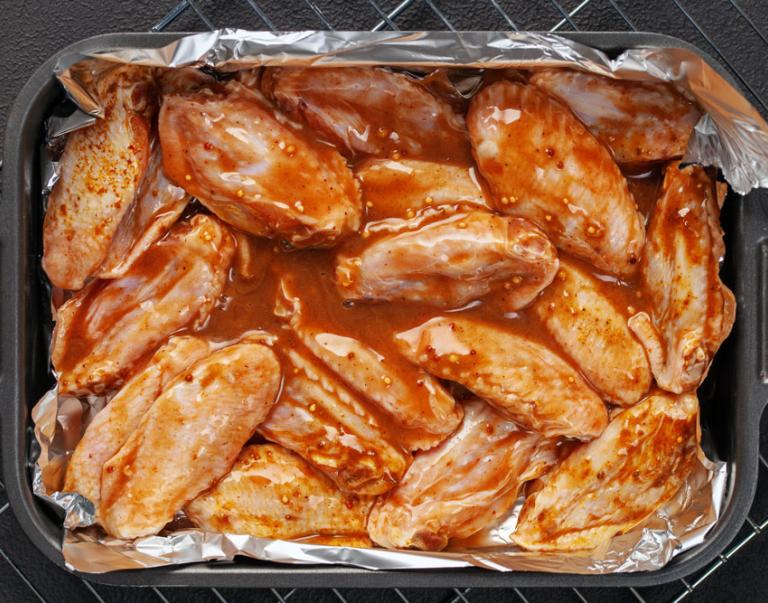
Recently I visited the Deer Run Farm in Brookhaven, New York on a tour of farms across the nation to talk face-to-face with producers and growers about produce safety. Farmer Bob Nolan from Deer Run Farm invited us to walk through his fields so he could share with us his thoughts and concerns about how the government will shape a new produce safety rule.
Recognizing the need to work with farmers directly, we helped coordinate this tour of farms so officials and policy makers from the Department of Health and Human Services (HHS), the Food and Drug Administration (FDA), and state government could hear directly from farmers. The valuable insight and clear expectations the farmers expressed will play a key role in how future produce safety policy will be written and implemented. Their expertise in soil, produce health, and farming methods is key to produce safety. As the FDA said in their recent blog, we need to learn from them...
Cross posted from the FDA blog:
Last week, farmers from across the North and South forks of Suffolk county Long Island showed a group of us from the U.S. Departments of Agriculture and Health and Human Services, the Food and Drug Administration (FDA), and the New York State Department of Agriculture and Markets the incredible diversity of their farms and the challenges FDA faces in writing a “produce safety” rule.
Bob Nolan, who farms 30 acres with his son and uncle, invited us because he heard that we had walked the rows of other fresh fruit and vegetable farms across the country. In fact, this was the 14th state we visited in the last year or so. We have seen the orchards of Oregon, the vast vegetable fields of California, Amish farms in Ohio, irrigation-dependent produce operations in Texas, vegetable farms in Delaware, North Carolina family farms, and Florida tomato fields to name just a few.
And each time, we have come away with new insights from the farmers and their families about how they are already addressing produce safety concerns, what they expect from an FDA rule, and the challenges of maintaining their way of life.
Our Long Island tour was a microcosm of the diversity we have seen across the country. Organized by Cornell extension agent Sandy Menasha and Long Island Farm Bureau executive director Joe Gergela, the tour of seven farms ranged from small to large, conventional to organic, first-generation farmer to twelfth generation.
Let’s face it, the first question a federal official gets asked on a farm is as blunt as the summer day is long: Why are you here? Mike Taylor, the FDA deputy commissioner for foods, has a pretty good answer: If we’re going to get this produce safety rule right, we need to learn from you.
That’s it in a nutshell. While FDA and its colleagues at USDA bring to the table scientific and public health expertise, we all know that farms are very much the real world of soil, air and water open to the elements 24/7 and worked by humans and animals. Farmers can inform us from their experience and practices.
Just see the different perspectives shared with us last week: the first-generation organic farm of the Garden of Eve; the 225-acre Ed Zilnicki and Sons’ potato farm; Nolan’s 30-acre Deer Farms devoted to leafy greens; the “agritainment” and “u-pick” farms like Hank’s Pumpkin Town, Harbes’ Family Farm, and the Milk Pail; and the farm stand run by Jim and Jennifer Pike.
And we got to hear loud and clear what the farmers expect from the FDA. “I can’t hire a food safety guy. I am the food safety guy,” Bob Nolan said. Hank Kraszewski wants the produce safety rule to be “crystal clear.” Tell farmers straight out, “What do I have to do,” he said. Record-keeping can’t become burdensome for small farmers like themselves, Eve Kaplan-Walbrecht and Jim Pike told us.
Farmers are also thirsty to learn more. Horse manure is a time-honored soil amendment for the sandy fields of Long Island. How can they apply it safely, they want to know.
And, while we heard that while farmers get it about food safety, they also want us to get it about the economic realities they face. Several had struggled in the ‘90s when wholesale potato farming became less profitable and they moved to other commodities and on-farm retail sales.
Successful produce safety is possible if farmers and food safety officials work together, listening to each other and learning from each other.


